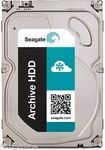This is the expired previous deal
Original eBay 20% off selected stores deal post
I have been comparing the drive with MSY or CPL and some other stores. I thought this might benefit some people here. I just purchased 2 :)
And of course do not forget the cashback from Cashrewards(cashrewards.com.au)






good drive to put in the NAS however these days i just cant not stand the noise made by those HDD..even a little bit..